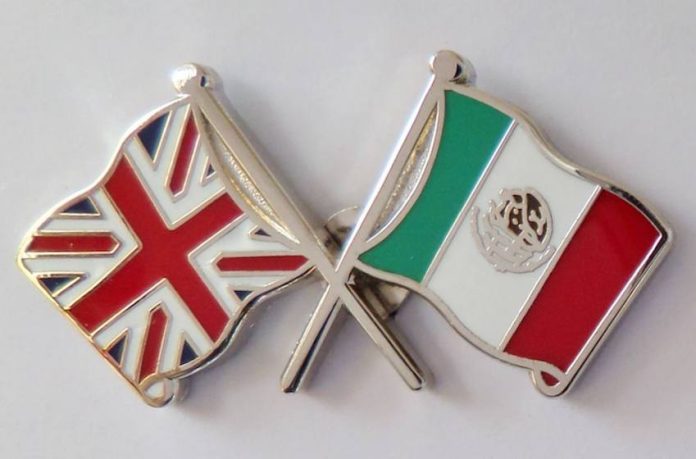Mexico and the United Kingdom celebrated 200 years of “friendship” in late 2023, although the two countries weren’t exactly on friendly terms throughout the entirety of the two-century-long period.
In this article — the first of Mexico News Daily’s “Global Mexico: U.K. in Focus” series — I’ll take a look at the ups and downs of the Mexico-U.K. relationship over the years as well as the state of commercial and government ties between the two nations today.
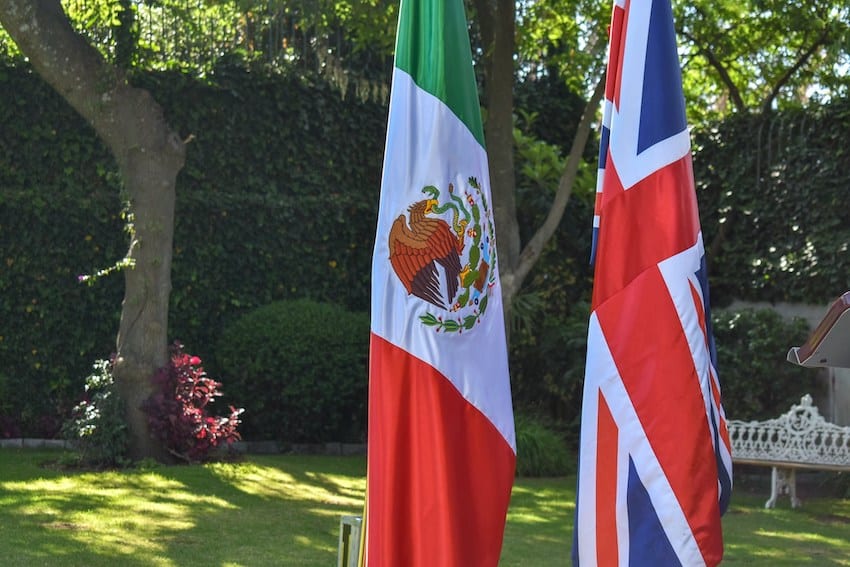
It’s safe to say that the U.K. and Mexico are now firm friends and partners — and have been for some time — despite the differences they had in the past.
It is also worth remembering that the U.K. and Mexico were, in a way, neighbors for an extended period as British Honduras — today the independent country of Belize — was a crown colony from the 1780s until 1964.
In addition to maintaining a long-running diplomatic and commercial relationship with Mexico, the U.K., a constitutional monarchy made up of England, Scotland, Wales and Northern Ireland, has made a significant cultural impact on the country, especially in the realm of sports.
A brief history of Mexico-UK relations
The United Kingdom recognized Mexico as a sovereign nation soon after it obtained independence from Spain in 1821.
A formal relationship between the two countries began in 1823, the year in which Charles O’Gorman was appointed as the first British consul in Mexico.
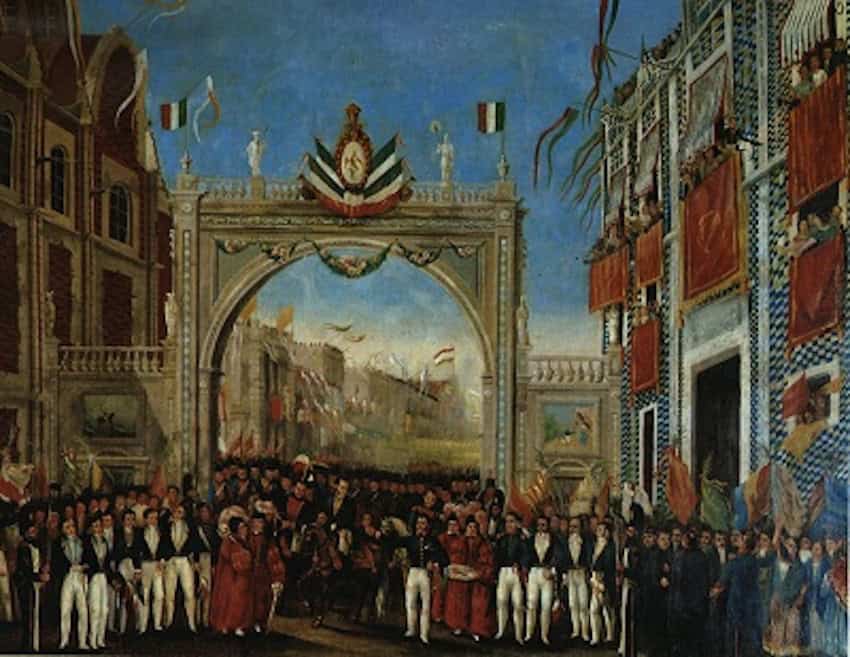
Relations between the two countries were further formalized in the mid-1820s with the signing and subsequent ratification of the British-Mexican Treaty of Amity, Commerce and Navigation.
Near the end of the following decade, the British intervened in the so-called Pastry War between Mexico and invading French forces and effectively brokered an agreement that brought the conflict to an end.
Just over 20 years later, Mexico-U.K. relations soured when Benito Juárez, the Mexican president at the time, suspended payments to creditors in Britain, France and Spain. In 1861, those three countries signed the Convention of London, under which they agreed to take joint action toward securing repayments from Mexico.
The New York Times reported at the time that the monarchs of the three countries felt compelled to act due to the “arbitrary and vexatious conduct of the authorities of the Republic of Mexico.”
The U.K., France and Spain sent navy ships to Mexico and occupied Veracruz, but British and Spanish authorities withdrew their forces in 1862 when they became aware that French Emperor Napoleon III was seeking a regime change in Mexico, an objective he ultimately achieved with the establishment of the Second Mexican Empire in 1864.
While Maximilian I was emperor of Mexico (1864-67), and for a number of years after his rule, diplomatic relations between the United Kingdom and Mexico were suspended. However, the bilateral relationship was reestablished after Porfirio Díaz became Mexican president in the late 1870s.
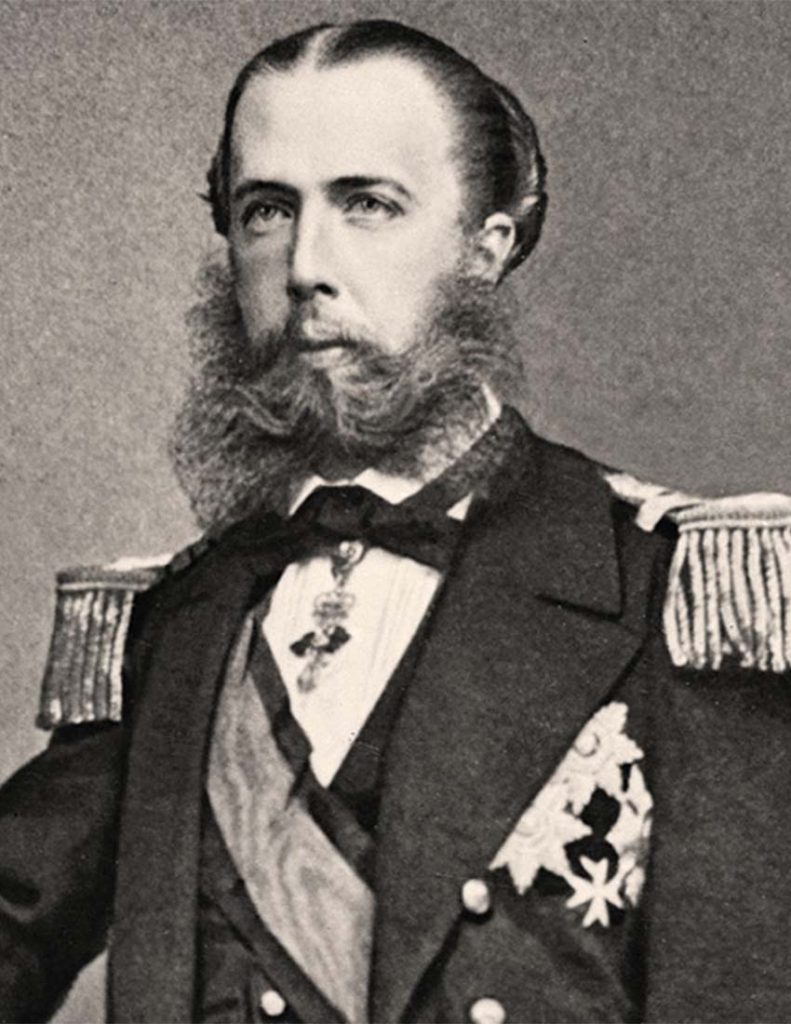
Relations were suspended again after president Lázaro Cárdenas nationalized Mexico’s oil industry in 1938, expropriating British oil companies in the process. By that time, the U.K. was a significant investor in Mexico, having injected money into sectors including rail transport, mining and oil.
Bilateral relations were reestablished once again in the early 1940s amid the Second World War, when Mexico’s president was Manuel Ávila Camacho and Winston Churchill was serving his first term as British prime minister. Shortly afterward, Alfonso Rosenzweig Diaz became Mexico’s first ambassador to the U.K. and Charles Bateman was appointed as the first British ambassador to Mexico.
In 1942, Mexico officially became a wartime military ally of the United Kingdom when it declared war on the Axis powers after losing oil ships in the Gulf of Mexico to German submarine attacks.
Mexico-U.K. relations remained largely amicable throughout the second half of the 20th century, a period that saw the first direct flight between Mexico City and London (1966) and an increase in trade between the two countries.
In 1973, Mexico’s president at the time, Luis Echeverría, became the first Mexican head of state to visit the U.K., where he met with Queen Elizabeth II at Windsor Castle. The Queen made the first of her two state visits to Mexico in 1975.
Exactly 40 years later in 2015, the Queen hosted Mexico’s president at the time, Enrique Peña Nieto, and his then-wife Angélica Rivera, at a state banquet.
“Prince Philip and I have fond memories of our visits to Mexico in 1975 and 1983 and we were delighted that, only a few months ago, The Prince of Wales and The Duchess of Cornwall enjoyed such an unforgettable visit to your country,” the Queen said in a speech at the banquet.
“… As we have seen many times, when the dynamism and creativity of our two countries are combined, whether that be in business, science, education, sport or culture, the results are extraordinary,” she said later in her address.
Margaret Thatcher, U.K. prime minister from 1979 to 1990, visited Mexico in 1981, attending the International Meeting on Cooperation and Development — the so-called North-South Summit — in Cancún before traveling on to Mexico City.
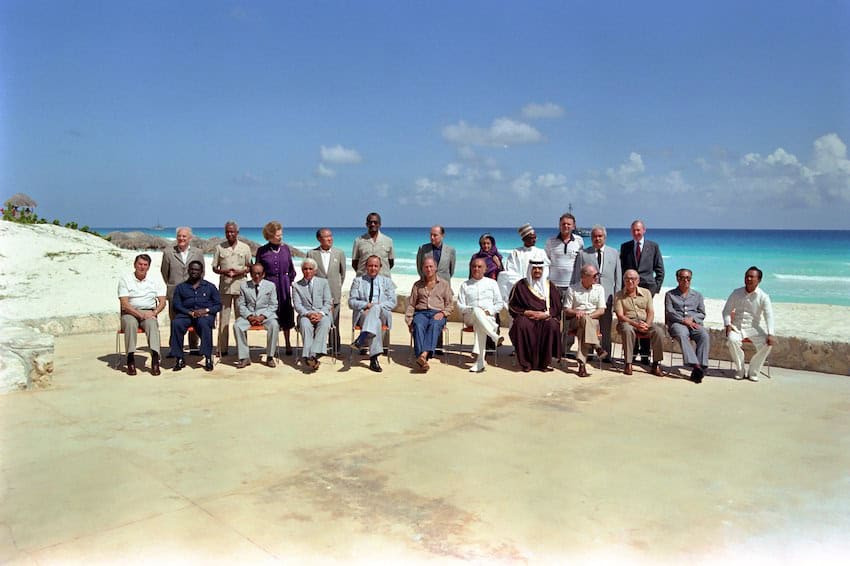
Carlos Salinas de Gortari, Mexico’s president from 1988 to 1994 traveled to the U.K. in 1990, and at an official dinner hosted by Thatcher declared that his visit enabled “a new diplomatic, economic and cultural proximity between the two countries.”
The bilateral relationship in the 21st century
The United Kingdom and Mexico currently have a robust commercial relationship, with two-way trade worth $5.71 billion in 2023, according to Mexico’s national statistics agency INEGI. Mexico’s exports were worth $2.91 billion last year, while imports from the U.K. were worth a slightly lower $2.78 billion.
Mexico’s top export to the U.K. in 2023 was turbojets, turbo-propellers and other gas turbines. Other exports included mobile telephones, alcoholic beverages and data-processing machines.
The United Kingdom’s top export to Mexico was cars. Other exports included medications, alcoholic beverages and ferroalloys.
The United Kingdom government said last month that “Mexico was the U.K.’s 40th largest trading partner in the four quarters to the end of Q3 2023, accounting for 0.4% of total UK trade.”
Trade between the two countries is currently governed by the U.K.-Mexico Trade Continuity Agreement, which establishes preferential tariff rates — zero in some cases — for exported goods. The U.K. and Mexican governments are currently aiming to reach an agreement for a free trade pact, while the U.K. is set to join the Comprehensive and Progressive Agreement for Trans-Pacific Partnership, to which Mexico is a signatory, later this year.
U.K. Ambassador to Mexico Jon Benjamin said in a 2022 interview that the objective in reaching a bilateral free trade agreement is to triple the value of trade between the two countries.
Meanwhile, the U.K. was the seventh largest foreign investor in Mexico last year, with investments totaling $936 million. Among the British companies that operate in Mexico are HSBC and Unilever.

Beyond trade and investment, the U.K. and Mexico collaborate in a range of international organizations and forums including the G20, the OECD and the United Nations.
One of the many areas of cooperation between the two countries is climate change mitigation.
“The U.K. and Mexico are committed partners in tackling climate change to meet the goals of the Paris Agreement and encourage inclusive economic growth,” according to the U.K. government. “Our shared ambition is reflected in the UK-Mexico Partnership for Sustainable and Inclusive Growth.”
In recent years, there have been meetings between the two countries at the ministerial level.
Liz Truss, U.K. prime minister for a short period in 2022, visited Mexico in 2021 when she was foreign minister.
“Our relationship with Mexico has huge potential. It could open vast new opportunities for businesses, support jobs across Britain, and help ensure we play a key role in an open and dynamic Indo-Pacific,” Truss said before her visit.
In September last year, member of parliament Dan Carden — now the U.K.’s trade envoy to Mexico — noted that “for several decades, the United Kingdom and Mexico have enjoyed a close and fruitful relationship, the continued success of which will be predicated on the principles of cooperation and mutual respect.”
In January, the two countries held an inaugural Multilateral and Human Rights Dialogue.
“Mexico and the United Kingdom discussed opportunities to strengthen our broad cooperation at the multilateral level, including in preparation for the “Summit of the Future,” progress towards the Sustainable Development Goals, UN governance and financing, and peacekeeping,” Mexico’s Ministry of Foreign Affairs said in a statement.
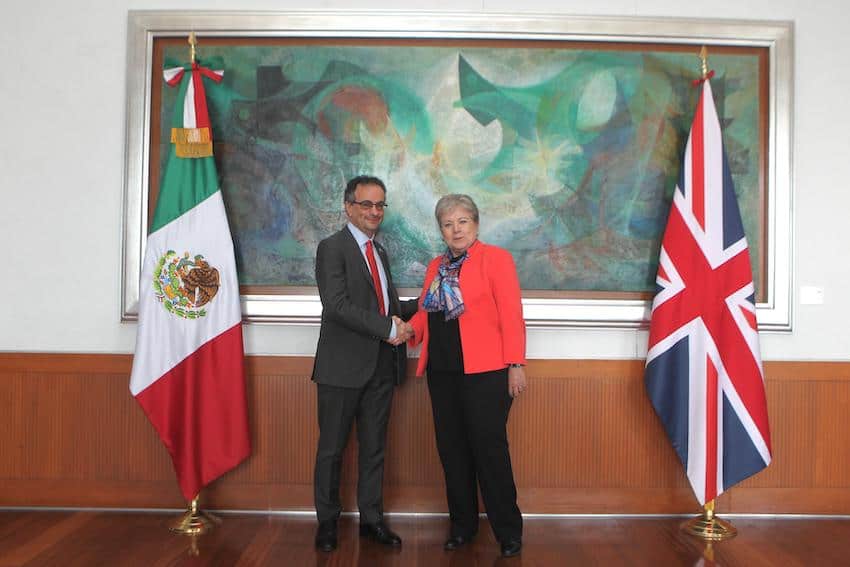
According to information supplied to Mexico News Daily by the British Embassy in Mexico, the embassy is “working on establishing robust partnerships with Mexican authorities in issues of cybersecurity,” assisting state governments to “navigate the complexities of decarbonization” and collaborating with Mexico “on democratic principles and the rule of law,” among many other initiatives.
British cultural influence in Mexico
English miners working in the state of Hidalgo introduced football, or soccer, to Mexico in the 19th century and the country’s first official football club was established in 1901 in Pachuca, known as Mexico’s cuna del fútbol (cradle of football).
Given the immense popularity of soccer in Mexico today, it is fair to say that the United Kingdom’s most significant cultural contribution to Mexico has been the introduction of the world’s most popular sport.
However, British influence in Mexico by no means ends there. In addition to soccer, Cornish miners introduced British food to Mexico, most notably pasties, or pastes, as they are known here. A specialty of Hidalgo, pastes today often contain distinctive Mexican fillings such as mole and tinga de pollo.
Although the Beatles never played a concert here, Beatlemania certainly reached Mexico — and has barely dissipated over the past 60 years.
“When it comes to the Beatles, Mexicans just can’t seem to let it be. The group split up in 1970, but it might as well have been yesterday for the masses of fans who come together whenever they can to celebrate John, Paul, George and Ringo,” The New York Times reported in 2016.
“Mexico City’s top classic-rock radio station dedicates two hours every weekday to Los Beatles. The second of two lengthy museum exhibits here of Beatles memorabilia closed recently. Small towns have named streets after the band’s members,” the Times report continued.
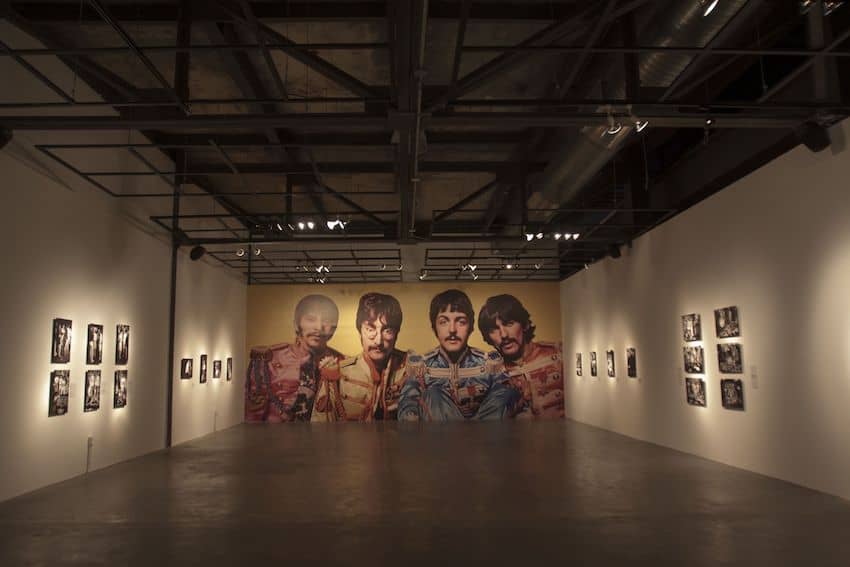
Other British artists have made a mark on — and in — Mexico, including surrealist painter and novelist Leonora Carrington, who lived in Mexico City most of her adult life. One of her sculptures — “How Doth the Little Crocodile” — adorns Paseo de la Reforma, Mexico City’s most emblematic boulevard.
And of course that extremely successful British export — the English language — is spoken by Mexicans all over the country, and is especially prevalent in the north, primarily due to the region’s proximity to a certain superpower that threw off the yoke of the British almost 250 years ago.
By Mexico News Daily chief staff writer Peter Davies (peter.davies@mexiconewsdaily.com)
To read more of the Global Mexico series, check out our India in Focus and Australia in Focus stories.
